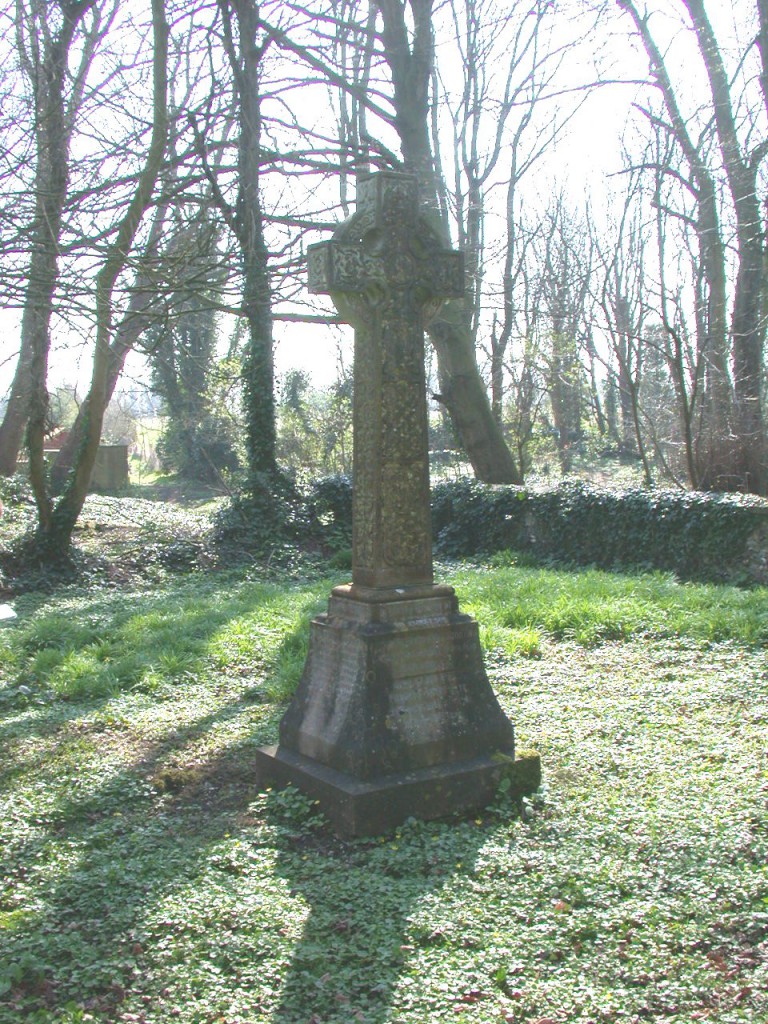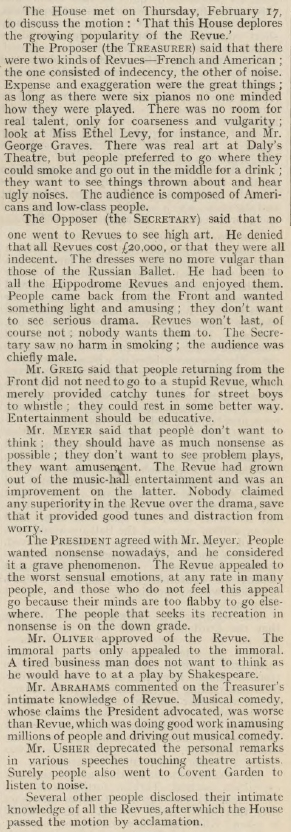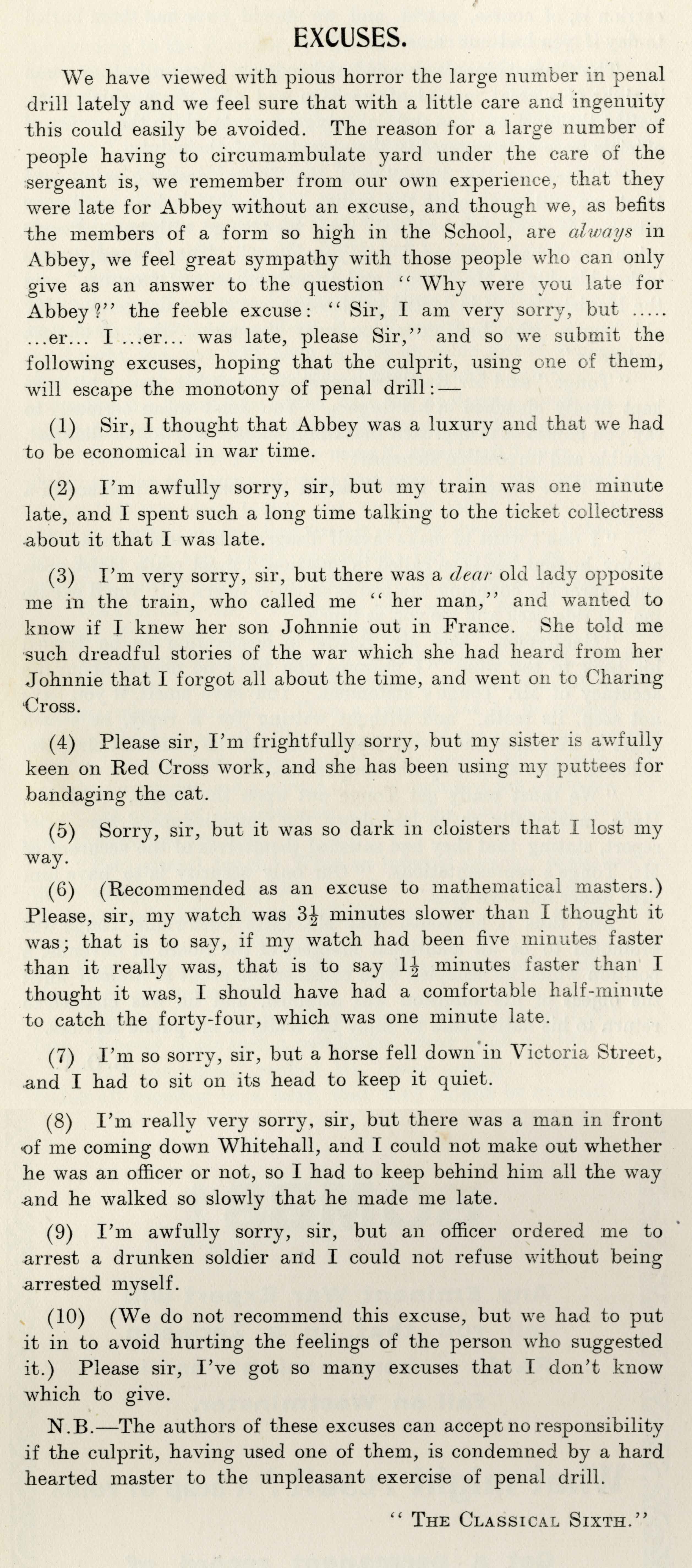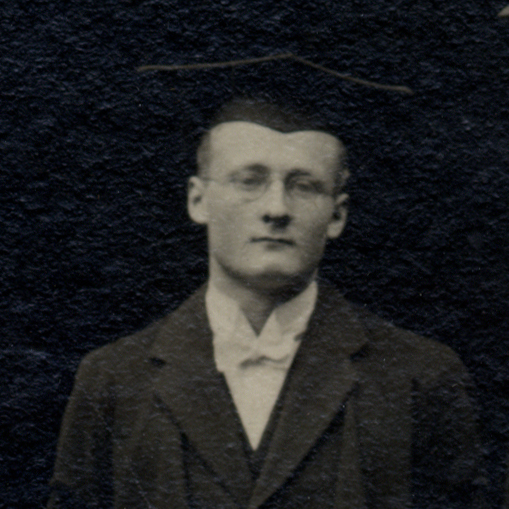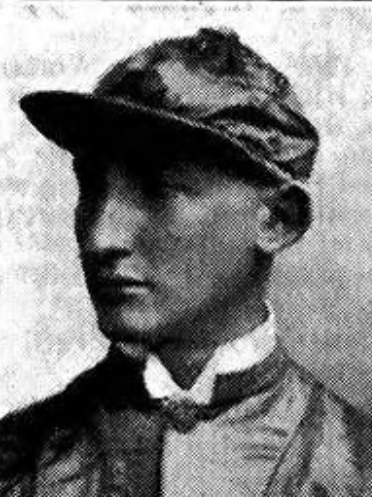Is there Life on Mars?
The disadvantages of lighting restrictions
Excuses
Thomas Reginald Dawson
Thomas Dawson was elected as a King’s Scholar at Westminster School in 1909. He was Secretary of the school’s Scientific Society and an active debater. In one debate he argued against compulsory military service stating that ‘Englishmen are becoming keener every year to volunteer, which makes compulsory service unnecessary.’
Dawson was true to his word and although he won a scholarship to Christ Church, Oxford in July 1914, he joined the army on the outbreak of the war. He took a commission as a 2nd Lieutenant in the 19th Battalion of the London Regiment but it was nearly a year before he was sent out to see active service on the Western Front.
Dawson was wounded at the Battle of Loos on 25th September 1915. He was sent back to England to have his wounds treated and ended up in hospital in Vincent Square, not far from the school. He died there from his wounds on 4th February 1916 and a number of pupils were able to attend his funeral at St. Philip’s, Sydenham and burial at Elmer’s End Cemetery, now known as the Beckenham Cemetery. Many of them would have remembered him from his time at the school.
The following letter was sent to the Editor of The Elizabethan following his death:
It is with some diffidence that I ask for the inclusion of this letter, because the paragraphs of eulogy that appear with absolute precision in most school magazines on the dead condemn themselves by their sentimental universality as in most cases obviously untrue. Nor shall I eulogise now. Much might be written upon the three young King’s Scholars whom the battle has claimed so far as its toll. First, we saw the death of W. B. W. Durrant, next of K. T. D. Wilcox, and now it is T. R. Dawson—all three only sons. But it is of the last that I should like to speak, for I was one of the few who knew him well, and it would be a pity if to future generations of Westminsters he were but a name on the wall.
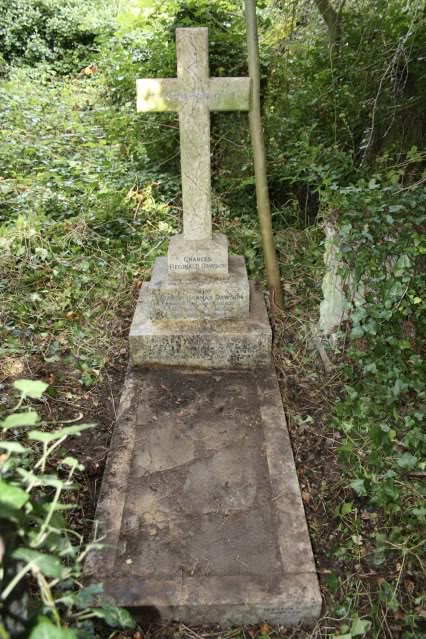
Dawson’s grave at Beckenham Cemetery
Not popular, not distinguished in athletic or intellectual ability, not striking except in a personality of extraordinary obstinacy and endurance. Such characteristics devoted to low ideals might have brought fame. Directed on the side of the angels, they were realised in full only by those to whom it was given to know him to the very end. It is as the first Head of Water after the revival that the School collectively owes him the deepest gratitude. Head of Water, but he gave up his place in the four when he saw someone better to fill it. But reference to foregoing pages would show in how many ways he did the ‘spade-work’ while others held more showy positions. And it was only his obstinacy that got him into the Army when the War called for officers, for, like Hannibal, he was blind in one eye. And, personally, may the gratitude be recorded of one who knew what it was to be able to rely on him absolutely when all others might fail– gratitude that ‘Bacchus’ Dawson did live once?
Yours as before,
εγρηγορος Φρονημα
The expedition to the Dardanelles should never have been undertaken
Sir Nevill Maskelyne Smyth is appointed Companion of the Order of the Bath
Major General Sir Nevill Maskelyne Smyth was a member of Grant’s House from 1882 until 1885. He went on to Sandhurst and began his career in the Army.
In 1898 he took part in the Battle of Omdurman in Sudan. Towards the end of the battle an enemy fighter attempted to attack two journalists who were part of the camp. Smyth galloped forward and although severely wounded by a spear in his arm, managed to shoot the man dead. He was awarded the Victoria Cross for his conspicuous bravery.
On the outbreak of the First World War Smyth was once again in the Sudan, working in the Khartoum district where he was active in combating the slave-trade. He was among several senior officers sent by Lord Kitchener to the Dardanelles as part of the Gallipoli campaign. He commanded the 1st Australian Infantry Brigade as a temporary brigadier-general at the Battle of Lone Pine and was one of the last officers to leave the peninsula.
He was mentioned in despatches on 29th January:
High praise is due to Brigadier-General N. M. Smyth and to his battalion commanders. The irresistible dash and daring of officers and men in the initial charge were a glory to Australia. The stout heartedness with which they clung to the captured ground in spite of fatigue, severe losses, and the continual strain of shell fire and bomb attacks may seem less striking to the civilian; it is even more admirable to the soldier.
Douglas Charles Hamilton-Johnston
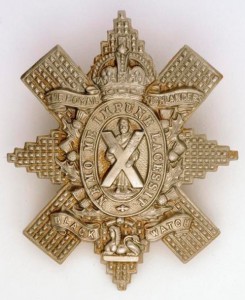
Douglas was the eldest son of Augustus and Bessie Hamilton-Johnston, who lived in Chelsea. He was born on 20th May 1889 and attended Charterhouse before arriving up Grant’s in 1904. After he left the school in 1906, Douglas matriculated at London University, and later spent some time in Frankfurt.
On his return to Britain, Douglas enrolled at RMC Sandhurst, perhaps inspired by his mother’s father who was a Major-General. After completing his training in February 1909, he joined The Black Watch (Royal Highlanders) as 2nd Lieutenant in the 2nd Battalion and became Lieutenant three years later. The Bareilly Brigade was formed in 1914 as part of the Meerut division of the British Indian Army, and Douglas’s battalion became part of this new brigade.
In October 1914, Douglas arrived at the western front with his battalion and served as Transport Officer of No. 1 Company. He was wounded slightly in December by a shell at Centre Section, Festubert, but recovered and was promoted to Captain in February 1915. He was wounded a second time on the 3rd March while preparing for the Battle of Neuve Chapelle, and this time was invalided home.
Whilst back in Britain, Douglas helped to train volunteers at the training camp at Bordon, Hampshire. One of the volunteers, David Elder Robertson, wrote to his parents on 26th September 1915, following a three-week brigade exercise: “ÔǪ Well I was glad when it was over for I was a tired one without sleep. If I had not had a stripe I would have got a sleep all right but I had to look after a section. Well I told them I was handing in my stripe and I was paraded in front of the Captain [D.C. Hamilton-Johnston], and I was fairly put through the mill and asked my reason for it I made the excuse I had no notion of it and he told me I was foolish. He said I was picked out as qualified for the job and that if I changed my mind I would not be long in getting another but I stuck to my decision so he said he would see about it. I am still wearing the stripe till I am told to hand it in but I have heard no more about itÔǪ”
Douglas returned to the western front in November 1915, and went with his battalion to Mesopotamia, where he was mentioned in despatches. In January 1916, he became a temporary Major, taking over from Colonel Wauchope, who had been severely wounded at the Battle of Sheikh Sa’ad. On the 21st January 1916, Douglas lead the 2nd Black Watch in an attack on Hanna, but by the end of the day he was reported as “wounded and missing (presumed killed)”. His former commanding officer, Wauchope, wrote:
“And right well did he respond to the call of duty. Both as Adjutant, under Colonel Wauchope, and as Commanding Officer, he had complete faith in the Battalion as had the Battalion in him. He was first wounded and then killed in this assault, but he died with the knowledge that he had kept its fighting spirit unbroken to the end.”
Percival Ernest Knapp
Percival Ernest Knapp attended Westminster school for over four years. He was admitted as a Queen’s Scholar and, whilst academically very able, came from a military family as was destined for a career in the army. During his time at school he was a keen debater and The Elizabethan records him speaking ‘in a very concise form’ against a motion to uphold the powers of the House of Lords. He also excelled at football as he was ‘very fast’ and ‘had a wonderful knack of getting round the backs’.
He left school in December 1892 and entered military training at Sandhurst. He served the army in India, seeing action in the Tirah campaign in 1897-8 and at the Battle of Peking in 1900 which followed the Boxer rebellion. He received medals from both conflicts. By 1912 he had been promoted to the rank of Major.
On the outbreak of war, Knapp served in Egypt but moved to fight in the Mesopotamia campaign in November 1915. He was killed in action at the Battle of Sheikh Sa’ad in an attack on the Ottoman Army.
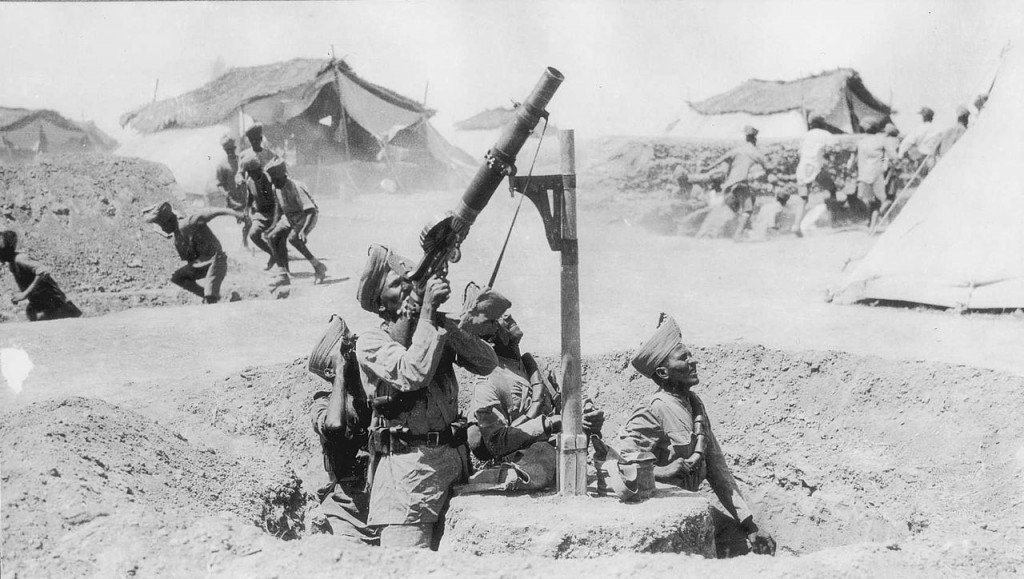
Wyndham John Coventry
Wyndham was at the school for barely two years, joining Ashburnham House in April 1902 and leaving in July 1904 at the age of 17.
He represented Ashburnham in the Senior House Match against Grant’s in 1904. The match was not going well for Ashburnham, when: ‘About this time Aglionby unfortunately put his finger out and was compelled to leave the field. Coventry took his place behind the wickets, and the change was not forhe better.’ But he had more success when the game resumed on Friday: ‘Coventry, the only batsman to offer any resistance, was last out for a plucky 23, after batting nearly an hour and a half.’ Wyndham was rewarded with House Colours at the end of the Season.
He came from a military family. His maternal grandfather, John Joseph Grinlinton had served in the Crimean campaign and was knighted in 1894. Therefore it is not surprising that Wyndham joined the army after leaving school. After passing out from Sandhurst in 1907 he joined the Indian Army. Here he excelled in horse riding and held the unique distinction of having won both Indian Cavalry Steeplechases (for horses and ponies) on the same day in 1914.
On the outbreak of war he left India with drafts for the Western front and worked as an observer in the Royal Flying Corps until June 1915. He was then recalled to his regiment in India and joined the expeditionary force to Mesopotamia (modern Iraq) in July 1915. He took part in the battles of Kut and Ctesiphon and was mentioned in despatches by General Townshend for gallant and distinguished service in the field. He died on 1st January 1916 from wounds received in action at Ali Gharbi the previous day. His colonel wrote: ‘He is indeed a great loss to the regiment, and the Indian officers and men feel it as much as we do; we shall miss him very much’.
